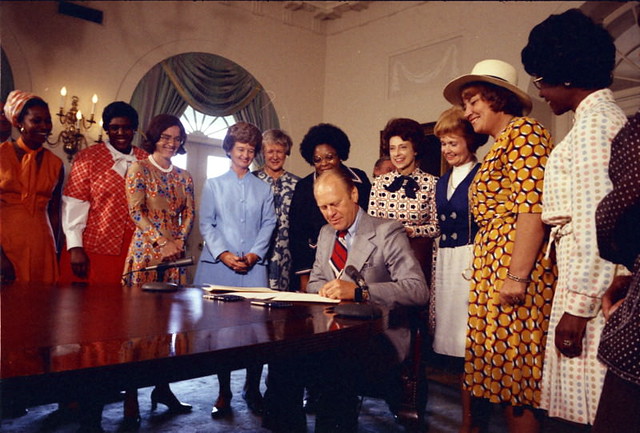Editor’s Note: Capt. Diane Carlson Evans served in the Army Nurse Corps in 1968 and 1969 in Vũng Tàu and Pleiku provinces, and is the author of Healing Wounds: A Vietnam War Combat Nurse’s 10-Year Fight to Win Women a Place of Honor in Washington, DC. She is founder and president of the Vietnam Women’s Memorial Foundation, and has received many honors for her long, difficult campaign to create the memorial to the 11,000 military and civilian women who served in Vietnam and the 265,000 who served around the world during the Vietnam era. All photographs courtesy of the author unless otherwise credited.
October 2024

Editor's Note: Elisabeth Griffith is the author of two acclaimed books on women's history, Formidable: American Women and the Fight for Equality: 1920–2020 and In Her Own Right: the Life of Elizabeth Cady Stanton. She has a PhD in history, and publishes a blog at Pink Threads on Substack.

The founders of American Heritage chose Bruce Catton to be the magazine's first editor in 1954. He had just won he Pulitzer Prize for History and the National Book Award for Nonfiction for his book A Stillness at Appomattox. Over the next two decades, Catton would write 90 essays for our magazine, in addition to his work as the editor-in-chief.
When David McCullough graduated from Yale University in 1955, his aunt bought him a copy of A Stillness at Appomattox. The gift changed his life.
Editor’s Note: Yuval Levin is the founder and editor of National Affairs and director of Social, Cultural, and Constitutional Studies at the American Enterprise Institute. He writes about the Constitution’s power to unify our fractious nation in his most recent book, American Covenant: How the Constitution Unified Our Nation – and Could Again, from which this essay was adapted.
Hope about our country does not come easily to Americans just now. Our capacity for it has been sorely tested in our time, especially by deepening divisions in our society. Americans have never lost hope in the face of outside threats, but internal discord strikes at the roots of our strength and leaves us doubtful of our capacity for renewal.
On a busy Wednesday morning last August, President and Mrs. Clinton found an hour to speak with me in the Oval Office of the White House. Defense Secretary William Perry and Attorney General Janet Reno were preparing for a live noontime conference in the West Wing press room to announce new legal policy regarding Cuban refugees; the taken-for-dead crime bill would finally pass the following day; the tumult over the future of the President’s health-care proposals was still very much in the air. We discussed none of these things, however, instead talking about history, its lessons and comforts, and what it has meant to the first couple.
When the editors at American Heritage magazine and I were talking and thinking about this article, we decided we wanted to look at the forces of history that may have influenced both of you, that may nourish you now, that may provide support and a sense of direction and perhaps a sense of comfort in difficult times.
It has been 65 years since D-Day—the early June day when the United States and its allies launched a massive attack on the shores of Normandy in a bid to liberate western Europe from the Nazis. It's been long enough for most people who still remember the date to have come to think of its success as natural and foreordained. But of course it was neither of these things. Supreme Allied Commander of the Allied Expeditionary Force Dwight D. "Ike" Eisenhower himself gave it no better than a 50-50 chance of success, even if the weather was good and everything went right.
Critics charged that Ike was spineless in his refusal to openly fight Sen. Joseph McCarthy.
Early in 1952, Gen. Dwight David Eisenhower confided to a friendly Republican politician why he was reluctant to seek the Presidency: “I think I pretty well hit my peak in history when I accepted the German surrender.”
Emerging from World War II as the organizer of the Allied victory, Eisenhower was America’s most celebrated hero. Both major political parties sought to nominate him for the Presidency. And when Ike decided to risk his historical reputation, he captured the 1952 Republican presidential nomination and ended twenty years of Democratic rule. Ronald Reagan was among the millions of Democrats who crossed party lines to support the Republican general. Afterward, the badly beaten Democratic candidate, Adlai E. Stevenson, asked his friend Alistair Cooke: “Who did I think I was, running against George Washington?”
Whatever the calendars say, in some figurative sense, America’s 1950s ended, and the 1960s began, on January 17, 1961, when President Dwight D. Eisenhower delivered the most memorable farewell address by a Chief Executive since another old soldier, George Washington, warned his new nation back in 1796 to stick together always in the cause of its founding principles. Ike, of course, had led the Allied forces in Europe to the triumph of democracy in World War II, a century and a half after General Washington had won America’s freedom in the Revolutionary War. What remains striking about the very similar public good-byes the two generals made upon leaving the Presidency 165 years apart is the depth of thought in their enduring appeals to humanity’s better nature.
